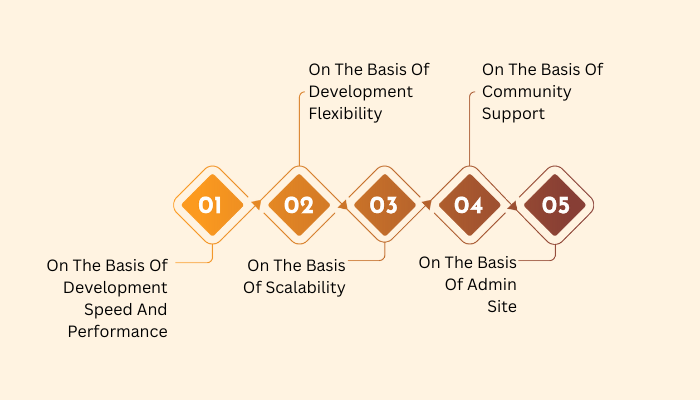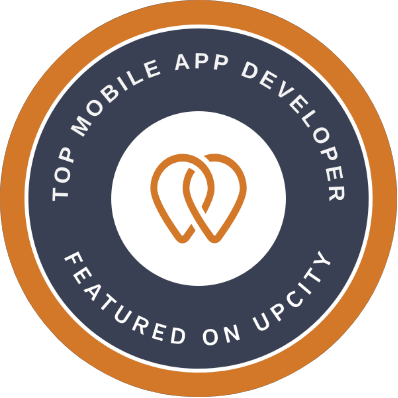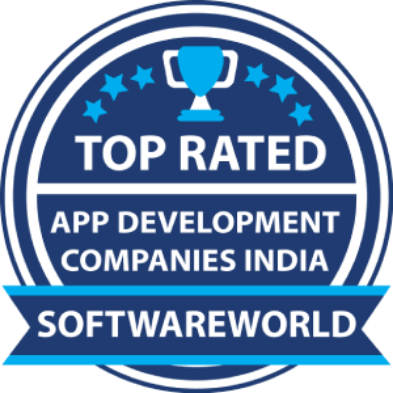When it comes to Flask vs Django, they both are an open-source framework that uses Python to create & manage websites, web servers, and web applications. 49.28% of developers use Python as it is the most popular programming language among developers.
They are the talk of the town and everyone is curious about how Flask and Django are different and how to choose between them.
Uncertainty is what you are stuck with while choosing this framework, they both work amazing and you hardly go wrong with either one of them.
12.16% of developers use Flask and 11.47% use Django as web frameworks in 2023 according to Statista.
But the best framework for you will depend on your specific requirements. If you are new to web development, Flask is a good choice as it is easy to learn and use.
On the contrary, if you are building a large web application that requires security, scalability, and a wide range of features Django is a good choice.
Ultimately the best way to decide which framework is right for you is to try both and see which one works best for you.
So, let’s clear the clutter of Flask vs Django and help you with the right track of web development.
Flask Vs Django: Picking the Right Python Framework
Flask or Django are both frameworks, in which Flask is a micro framework while Django is a full stack framework. This means that Flask only provides the essential features for building web applications, while Django provides a wider range of features, including a database abstraction layer, templating, and user authentication.
Moreover, Flask is generally considered to be easier to learn than Django. This is because Flask has a simpler API and a less opinionated approach to web development.
Here are comparisons that summarize the key differences between Django and Flask:
| Feature | Flask | Django |
| Size | Micro framework | Full-stack framework |
| Learning curve | Easier | Steeper |
| Speed | Faster | Slower |
| Use cases | Small to medium-sized web applications | Large web applications |
| Architecture | Wrapper for WSGI | Model View Template (MVT) |
| Working Style | Diversified | Monolithic |
| Flexibility | High | Low |
| Companies using | Netflix, Reddit, Uber, Lyft, Zillow, Patreon, Airbnb, MIT | Spotify, Instagram, Dropbox, Pinterest, Mozilla, YouTube, NASA, National Geographic |
| GitHub Stars | 61.7k | 68.4k |
| API Support | Yes | No |
| Database Support | Relies on SQLAlchemy or other extensions for ORM | Built-in ORM & support for SQLite, PostgreSQL, MySQL, MariaDB, and Oracle |
| Bootstrapping Tool | No | Yes (Django-admin) |
| Template Engine | Jinja2 | Django Template Language (DTL) |
| Authorization | Cookies | Account management & sessions |
| Multi-Page Apps | No (Single-Page Only) | Yes |
| Dynamic HTML | No | Yes |
| Third-Party App Support | No | Yes |
| Virtual Debugger | Yes | No |
| Testing Support | Yes (unit test) | Yes (unit test) |
| Forms | Requires Flask-WTF extension | Built-in |
| URL Dispatcher | RESTful | Controller RegEx |
Difference between Flask vs Django

What is Flask?

Flask is the best framework for small web applications. It’s simple, easy to learn, and fast. – Armin Ronacher, creator of Flask
In 2010, the Python-based micro-framework was designed for minimal external library dependencies. It offers developers the freedom to tailor their preferred design patterns, databases, plugins, and more.
Originally conceived as an experiment involving the Wekzeug WSGI toolkit and Jinja2 template library integration, Flask has since evolved into a robust & lightweight framework.
Unlike the batteries-included approach, Flask emphasizes extensibility. However, Flask is often hailed for its Pythonic nature making it accessible to developers with its gentle learning curve.
Now, if you want to delve into a flask, pursue its guides to Python framework for seamless initiation.
Its features:
- HTTP request handling
- RESTful request dispatching
- Scalable, component-based framework
- Development server & fast debugger
- Jinja2 templates, WSGI 1.0 compliant
What is Django?

Django is the framework for perfectionists with deadlines. – Adrian Holovaty, co-founder of Django
Django is a high-level Python web framework for building robust and feature-rich web applications quickly and efficiently. Moreover, it’s a full-stack web framework that simplifies web application development by providing built-in tools for database management, URL routing from handling, authentication, and more.
It follows the batteries included philosophy, offering a comprehensive set of features to streamline the creation of complex, data-driven websites and applications.
Its features:
- Builds CMS, social networks, and scientific platforms
- Offers features like caching, admin, and more
- Guards against SQL injection, XSS, and more
- Supports JSON, HTML, XML, etc.
Django vs Flask: Pros and cons
Django is a mature and well-established framework, and it is still actively developed and maintained. It’s a good choice for a variety of web applications.
However, flask is a good choice for small to medium-sized web applications that require flexibility and scalability.
Take a look at Django Pros:
| Comprehensive | Includes a wide range of built-in features like authentication, admin panel, and ORM. |
| Rapid Development | Enables quick prototyping and development with its ‘batteries-included’ approach. |
| Scalability | Supports large and complex applications through its modular architecture and best practices. |
| Security | Provides built-in protections against common vulnerabilities, promoting secure coding. |
| Documentation | Offers extensive and well-maintained documentation, making it beginner-friendly. |
| Community | Benefits from a large and active community, resulting in strong support and frequent updates. |
Take a look at Django’s Cons:
| Learning Curve | Its rich features may lead to a steeper learning curve, especially for beginners. |
| Monolithic | The ‘batteries-included’ philosophy can lead to codebase bloat for smaller projects. |
| Opinionated | Imposes certain conventions and design patterns, limiting flexibility for some developers |
Take a look at Flask Pros:
| Lightweight | Offers flexibility and minimalism, giving developers control over components used. |
| Simplicity | Easier to learn and get started with, making it great for smaller projects and prototypes |
| Customization | Allows developers to choose libraries, components, and design patterns as needed. |
| Micro Framework | Supports building small to medium-sized applications without unnecessary overhead. |
| Freedom | No opinionated structure, making it suitable for developers who want more control. |
| Ideal for APIs | Suited for building APIs and microservices due to its simplicity. |
Take a look at Flask Cons:
| Limited Built-in Features | Lacks some higher-level features like an admin panel or ORM. |
| Scaling Complexity | Requires manual implementation of additional features as the application grows. |
| Security | Developers need to be more vigilant in implementing security features since they’re not built-in. |
Best Python Web Framework to Use in 2024

Choosing the optimal framework for your website is similar to determining app features, programming language, and budget. A well-informed choice can curtail development expenses while enabling seamless scaling as your application expands.
Hence, our focus now turns to a comprehensive analysis of Flask and Django, two of the top Python web application frameworks. These backend frameworks are pivotal for web app development.
Through this evaluation, we aim to pinpoint the ideal web development framework for your specific web application needs.
Based on Development Speed and Performance
When it comes to building a website with Django, it comes with a tagline – Web framework for perfectionists with deadlines.
If you have a shortage of time, building web applications with Django is rapid and effortless. It not only delivers quick outcomes but is also helpful in giving ideal solutions for building large applications.
Flask based on development speed and performance
As we have mentioned in the blog, Flask claims to be a microframework for Python based on Werkzeug. It means it aims to be simple as possible which helps developers to build apps in less time.
Outcome:
Django vs flash python, who wins? No doubt Flask’s performance is better than Django’s when it comes to speed. It takes less than 5k lines of code rather than Django with 10k lines of code.
Hence, Flask outsmarts when it comes to performance.
on Development Flexibility
Tables can turn when it comes to flexibility. Here Django can overcome Flask.
We have already mentioned that flask brings minimal and simplicity to work and it comes with no restrictions. Thus, allowing a developer to build robust apps with the external library as the cherry on the cake.
But Flask doesn’t make decisions like what database to use.
Outcome:
On the other side, Django has its own set of modules and built-in features, thus giving liberty to control and experiment.
Therefore, the batteries in Django, help developers to build a variety of web applications without using any libraries and third-party tools
Based on Scalability
When you want to build highly scalable web applications Django is the best option as it provides overall scalability options.
Moreover, it’s a component-based framework that works on the principle of not repeating anything. Each layer has its functions which means you can scale up the app at any level. So you can scale your web app effortlessly while maintaining flawless performance.
Outcome:
On the other hand, the flask has limited scalability as it is a micro framework. Therefore, as compared to Django, Flask scalability is limited.
Based on Community Support
First come first served, Django was released in 2005, and now enjoys a large community of active developers. As it came up with a variety of plugins, extensions, and third-party applications that satisfy the need for web development.
Currently, Django has 55.6k stars, 2.3 k watches, and forked 23.9k times. Now Flask was early released in 2010 and has 53.9k stars and 2.3 k watches and 14.1k forked times.
Outcome:
The result is clear, based on the statement above, Flask vs Django.
Django overcomes Flask and considering the community parameter, both have the benefits of huge support.
Based on Admin Site
Django is equipped with an admin system, ideal for the rapid creation of internal tools to manage data. It uses ORM and a uniform directory structure, providing an inclusive feel across projects.
On the other hand, Flask lacks a native admin interface. The flask-admin extension offers similar functionality, demanding a custom setup, especially for authentication integration.
Outcome:
When compared to Django, its complex to set up custom modules with Flask, so it’s clear that Django is better for an admin site
Lastly, let’s discuss the use cases before reaching the conclusion.
When to Use Django vs Flask?
1. Flask use cases
- Scratch-Built Flexibility:
Opt for Flask when desiring complete autonomy without dependencies. Ideal for building powerful microservices.
- Rapid Prototypes & Static Sites
Choose Flask for quick static websites, MVPs, and efficient prototyping. Leverage its simplicity. Hiring Python developers can expedite your projects.
- RESTful & Serverless
Flask excels in crafting RESTful web services and apps using inventive SQL queries. Gain meticulous control.
2. Django use cases
- Robust APIs & Social Networks
Opt for Django when crafting sturdy APIs via the REST framework or dynamic social networking platforms. Hiring a Python developer enhances API and network prowess.
- Enterprise Data-Driven Apps
Django shines for enterprise-level applications with intricate personalization. Ideal for data-rich projects, catering to advanced needs. Hiring Python developers elevates enterprise app development.
- ORM Support & Future Tech
Choose Django for web apps with robust ORM support, API backends, and future-ready technologies like Machine Learning. Python developers are key for implementing advanced features.
Your selection between Python Flask vs. Django hinges on your company’s unique context. Combining both frameworks may suit large enterprise apps, leveraging Flask’s components and Django’s Admin Panel.
Now armed with insights into the framework best fits, pinpoint your web app’s purpose. For guidance, enlist an adept tech partner or hire proficient Python developers to ensure optimal framework alignment.
Conclusion
We hope that this blog boils down to your Flask vs Django. The choice between both of them depends on your team’s proficiency. Additionally, when considering Flask Vs Django, it’s worth contemplating the cost factor.
While both are open source the cost to hire Python developer may vary based on skill level and project requirement. Undoubtedly this blog guides you toward the optimal Python web framework that propels your vision forward.
FAQs
Choose Flask for lightweight, customized projects, or Django for robust, feature-rich apps. Consider project scale, complexity, and team expertise.
Flask is ideal for microservices, offering flexibility and minimalism.
Django excels in data-driven applications, providing comprehensive features.
Flask’s simplicity suits newcomers, while Django demands steeper learning but offers powerful tools.
Flask allows high customization, whereas Django provides a structured approach with built-in components.
Both can handle APIs, but Flask’s lightweight nature makes it popular for quick API development.
Django’s versatility and built-in tools facilitate integration, while Flask’s flexibility can be tailored for ML projects.
Django’s architecture supports scalability, while Flask may require more manual adjustments for large-scale projects.

Niketan Sharma is the CTO of Nimble AppGenie, a prominent website and mobile app development company in the USA that is delivering excellence with a commitment to boosting business growth & maximizing customer satisfaction. He is a highly motivated individual who helps SMEs and startups grow in this dynamic market with the latest technology and innovation.
Table of Contents












No Comments
Comments are closed.